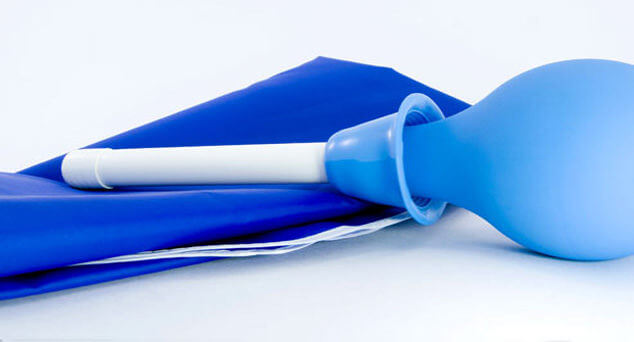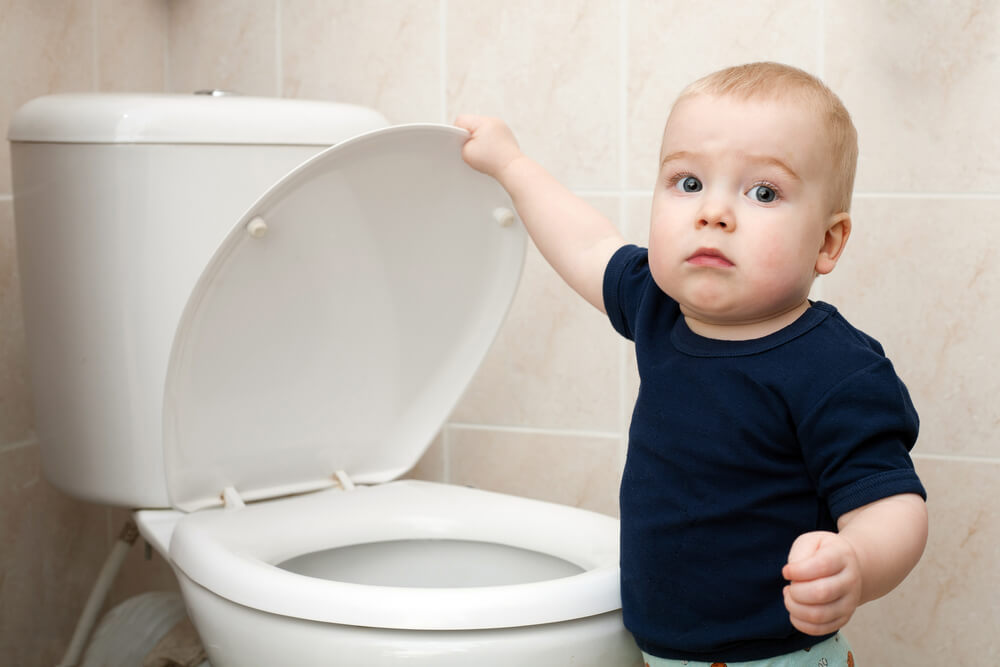Baby Enemas – Is It Safe To Give Enemas To My Baby?
Babies at any age will come across with constipation issue. While there are many less invasive remedies for constipation in babies like introducing prune juice or giving medicine like Miralex but when a baby’s stool become too hard, all these remedies can be powerless.
Related: Is Miralax safe for baby?
Babies suffer constipation because the stool becomes too compacted and this cause delay of defecation (pooping). In order for the hard stool to flush out from a baby’s rectum, first is to make the hard stool become softer so that it can be pass through the anus and an enema is the one that can get this job done well. If you are going to use an enema on your baby, read on to understand more about baby enemas.
What Is An Enema?
An enema or clyster is basically a fluid injected into the lower bowel by way of rectum through your baby anus. The most common use of enema is to flushes out hard stool that has accumulated in the rectum and unable to pass out naturally.
While an enema is usually had by adults when they feel they need a "clear out", but they are also use with babies to treat serious constipation. You might feel the need to give your baby an enema if she is constipated to the degree where it is causing them discomfort.
Tips from parent:
It’s worth to mention that some babies when constipated, they will throw out after you feed them food either solid or non-solid. This is due to they are trying to poop but because the stool is hard to come out and cause a reflex and result in vomiting. So, do pay attention to such telltale sign.
Is Enema Safe For My Baby?

You might be wondering is baby enemas are safe? The answer is YES. When you baby having constipation issue and no natural ways can help her to pass motion, then an enema is the only option for instant result.
However, consult a doctor before using any baby enemas for the first time so that the doctor can administer the result and advice if further enema is necessary for your baby. Carry on reading to discover exactly how enemas work and the process involved.
How Does An Enema Work?
Liquid is flushed into the rectum using a tube during an enema; this helps to clear out the system and can make it much easier for the baby to have normal bowel function in the future.
To perform an enema on your baby, make sure that they are laid down in a comfortable position and rub olive oil on the end of a bulb syringe to lubricate it. Other type of baby-safe lubricant is allowed but using olive oil is the best as it’s natural.
Insert the enema about 1/4 inch into her anus, making sure the syringe contains 2 or 3 teaspoons of lukewarm water. Gently press the syringe to dispatch the water into the anus, after a few minutes your baby should pass a stool effectively. For more detailed steps, Cincinnati Children’s has a well-written article on this topic.
Different Types Of Enemas
There are two types of enemas that might be appropriate for your baby, one being a "phosphate solution enema" and the other being a "saline solution (salt water) enema".
Talk to your doctor about these and they will be able to advise what is right for your child based on a few different factors. Be sure to let them know if your baby has any allergies because this could make a difference to which one is the right choice.
Precautions When Using Enemas
Giving a baby an enema is obviously not a day-to-day occurrence, so it's vital that you follow the correct steps and take any necessary precautions too. Always follow the instructions of your doctor and if they tell you that an enema is not the right step for your baby, they are likely correct! You should also be aware of the following points.
- It is not usually recommended that a baby under the age of 2 have an enema, although there are exceptions to this.
- Do not give enemas too often, as they can irritate the child’s anus. Over rely on baby enemas will create a bad habit where your baby will hold her poop until an enema is insert to release the stool.
- If you do not do an enema correctly, this can lead to dehydration and other issues.
- Seek medical attention if you give your baby an enema and they suffer from complications including nausea, vomiting, extreme fatigue, swelling, unable to urinate or your child’s condition gets worse in any way.
Sharing Is Caring

Like what you read so far? How about help us to spread this AWESOME post to your friend and family? Your shout-out will help to motivate us to create more great posts for you and everyone else. Thanks for your support!
Check out this post for 'Baby Enemas – Is It Safe To Give Enemas To My Baby?.'
What Causes Baby Constipation?

Before you reach out for baby enemas, first by understanding why constipation happens in babies. Understanding how a constipation started can help you to avoid them naturally rather than using more invasive method like enema.
Constipation with babies is actually really common and is basically because their digestive system isn't as developed yet. For example, formula milk is harder to digest than breast milk and studies have shown that babies who are formula fed are more prone to constipation.
Another possible cause of constipation in babies is dehydration, if they are not getting enough liquids their poop will be much compact and harder than they are meant to be at this age and they will struggle to pass them.
Carry on reading to discover how to treat constipation in more natural ways, without the need of using baby enemas.
Tips To Treat Constipation
There are many different ways that you can help to treat constipation with your little one and this includes the following:
- If it's possible for you to breast feed, this can help in treating constipation naturally. Breast milk is the easiest digested food for your baby. It’s liquid and easily pass through your baby’s processing system without any issue.
- Many people don't realize that babies sometimes need water in addition to milk to keep their fluid levels up. You can provide them with a bottle of water to sip on throughout the day if you feel that they need it. However, babies below 6 months old do not need any water but only milk as fluid for their body.
- Baby massage is offered in many places and in addition to helping to relax your baby; it can also greatly help with constipation. Watch this video and you can even learn to massage your baby at home, which can become really handy.
- Magnesium is something that your baby needs to go pass stools regularly and if they are lacking in this, it could cause constipation. Visit your doctor if you want some magnesium for your little one and they will tell you how to administer it correctly and the right dosage needed.
- If you have tried these are none of them are working, an enema could definitely be the right choice for your baby. Baby enemas should be a last resort solution and should be the first consideration in your list.
Notes
It’s important to note that constipation refer to consistency of your child’s stool and not the frequency. So long your baby is passing soft stools, all is fine and sunshine. You should only be alarm when you start seeing hard pebble like stools or pain and grunting when your baby wants to poop and it’s also the best time to consult your child’s physician if such situation arises.


